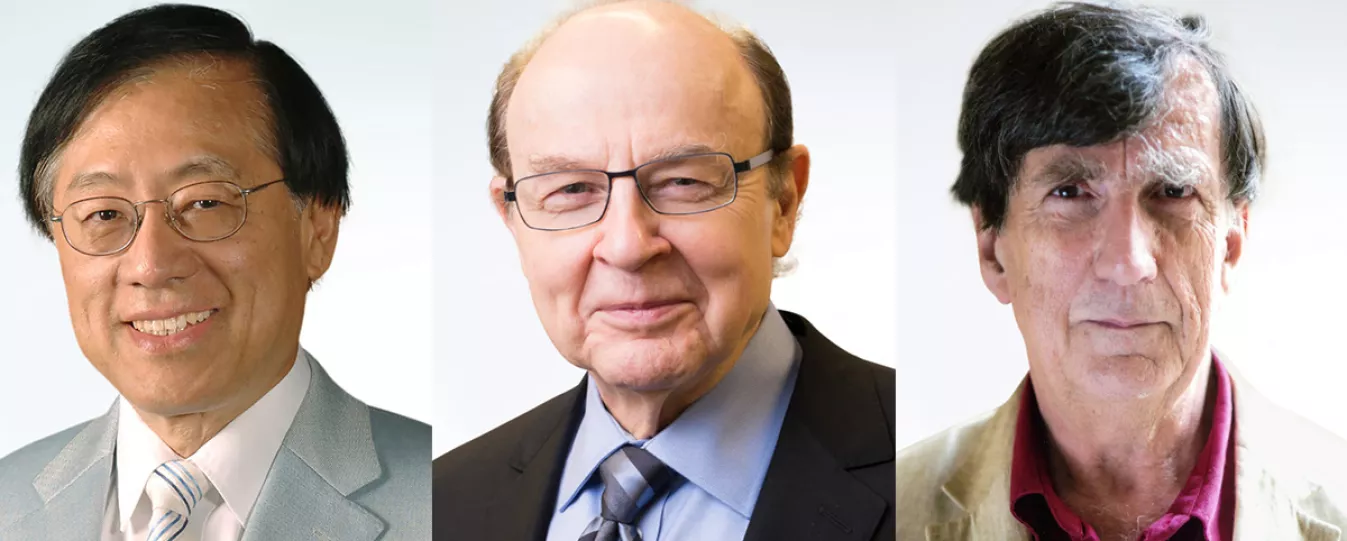After a one-year hiatus, the Inamori Foundation has announced today the laureates who will receive the 2021 Kyoto Prize and who we will have the pleasure of hosting in May 2022 for the Kyoto Prize at Oxford.
A computer scientist, a biochemist (and molecular biologist) and a philosopher will receive the prestigious international award for their contributions to the scientific, cultural and spiritual improvement of society. Watch the official press conference of the announcement.
- Andrew Chi-Chih Yao – Advanced Technology (Information Science)
Dean, Institute for Interdisciplinary Information Sciences, Tsinghua University
Pioneering contributions to a new theory of computation and communication and a fundamental theory for its security
Andrew Chi-Chih Yao created new trends in computer science and made a great contribution to cutting-edge research in various areas, especially in security, secure computing, and quantum computation through establishing innovative fundamental theories for computation and communication. His achievements are continuing to influence current real-world problems such as security, secure computing, and big data processing.
- Robert G Roeder – Basic Sciences (Life Sciences – Molecular Biology, Cell Biology, Neurobiology)
Arnold and Mabel Beckman Professor of Biochemistry and Molecular Biology, The Rockefeller University
Discovery of the principle of gene transcription mechanisms in eukaryotes
Robert G. Roeder has revealed the principle of the regulatory mechanism of transcription in eukaryotes through his over 50 years of transcriptional research, by identifying functions of a series of factors such as three distinct RNA polymerases, basic transcription factors, one of the first gene-specific factors, and regulators in transcription from chromatin. Through his achievements, he has made significant contributions to develop present life science.
- Bruno Latour – Arts and Philosophy (Thoughts and Ethics)
Professor Emeritus, Paris Institute of Political Studies (Sciences Po)
Radically re-examining “modernity” by developing a philosophy that focuses on interactions between technoscience and social structure
Bruno Latour has revolutionised the conventional view of science by treating nature, humans, laboratory equipment, and other entities as equal actors, and describing technoscience as the hybrid network of these actors. His philosophy re-examines “modernity” based on the dualism of nature and society. He has a large influence across disciplines, with his multifaceted activities that include proposals regarding global environmental issues.
Sadly this year the traditional Kyoto Prize Presentation Ceremony in Kyoto, Japan will not be held due to ongoing COVID-19 pandemic. However, in place of the usual commemorative lectures, special lectures by the laureates will be delivered online. Details of these lectures will be announced in due course on the Kyoto Prize website.
Each laureate will receive a diploma, the Kyoto Prize medal (20K gold), and prize money of 100 million yen. The laureates will travel to San Diego in March 2022 for the Kyoto Prize Symposium, before travelling to Oxford for the Kyoto Prize at Oxford, scheduled for 10-11 May 2022. We remain optimistic that next year we will be able to welcome the Laureates and the public to Oxford and the Blavatnik School of Government.
